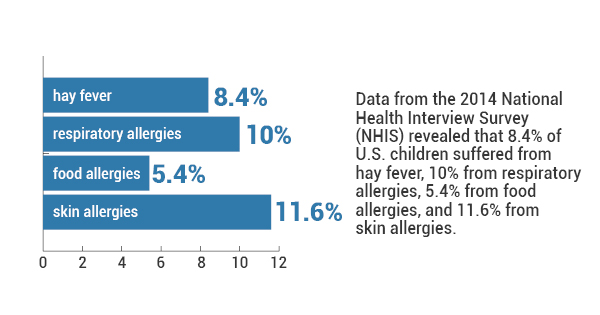Allergies are a common ailment for children across America. In fact, 8.4% of children suffer from hay fever, another 10% struggle with respiratory allergies, 5.4% have food allergies, while another 11.6% of children have skin allergies.
Peanut allergies have a reputation for being particularly damaging, especially since they pervade so many food producers and restaurants.
But how do you recognize a peanut allergy or other food allergy in your child? And how do I know when their symptoms are bad enough to take them to a 24 hour pediatric urgent care? Here’s everything you should know about peanut allergy diagnosis and care.
Diagnosis
While many free clinics and local hospitals offer allergy testing, getting your child tested for an allergy isn’t at the forefront of your mind as a parent. However, it’s important to recognize the common symptoms of an allergic reaction should your child eat peanuts and have a food allergy.
First, it’s important to recognize that your child will only develop allergies between one and two years old. That means that they may be able to eat peanut products without suffering from an allergic reaction. This becomes more common if peanut allergies run in the family. When they do have an allergic reaction, however, here are some of the common symptoms to watch out for:
-
- Throat irritation, including an itchy mouth or difficulty breathing
-
- Wheezing and coughing
-
- Hives around the mouth, nose, eyes. These can spread to other locations, however, such as the arms or legs. This is especially common if peanut oil makes contact with the skin through creams or lotions.
-
- Swelling of the lips, eyes, and/or face. In severe reactions, the throat and tongue can also swell.
-
- Runny nose and/or itchy, watery eyes
- Nausea, including vomiting and diarrhea
When should I take my child to the hospital?
You should take your child to Bakersfield pediatrics or other 24 hour pediatric urgent care centers if you suspect your child is suffering from a severe reaction. Though anaphylactic reactions are rare, they’re life-threatening and require urgent medical attention.
To be safe, good food for a sick toddler includes any food that doesn’t have an allergy in your family. At the first instance of an allergic reaction, don’t hesitate to visit your family urgent care. Rely on the urgent care you can trust for great pediatric treatment today: Accelerated Urgent Care.

